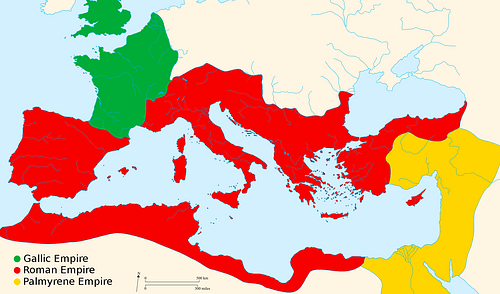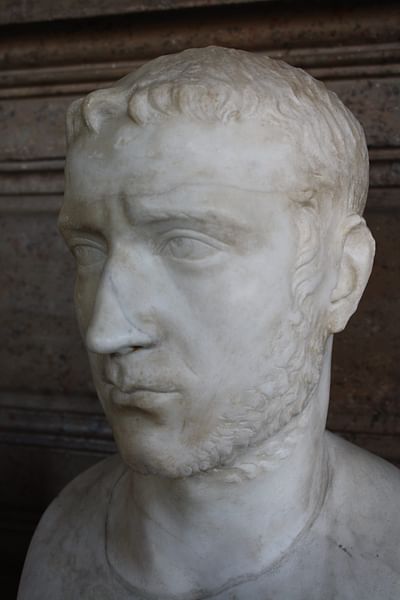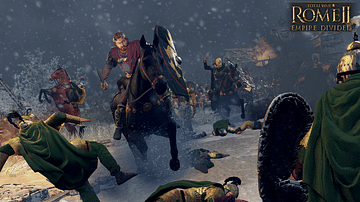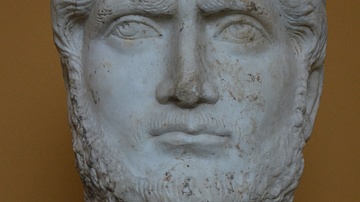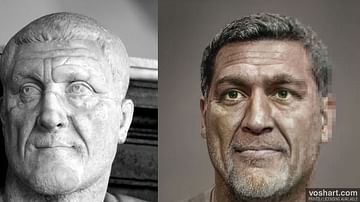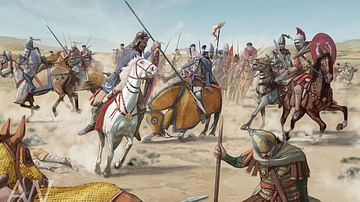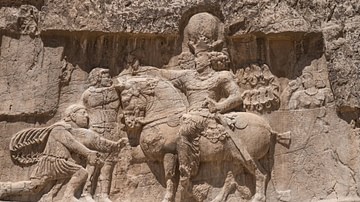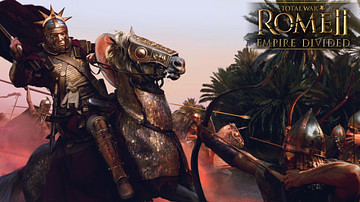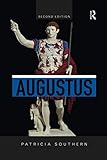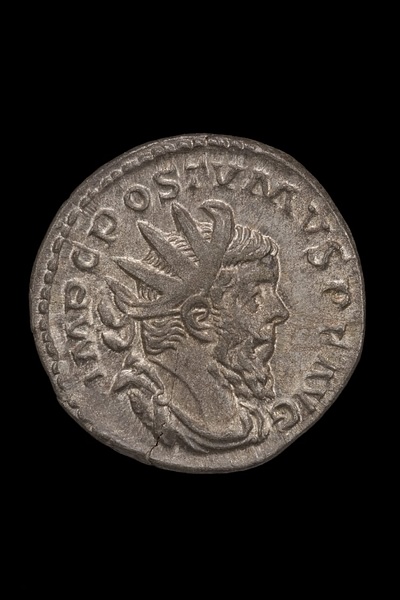
Postumus was Roman emperor from 260 to 269 CE. Marcus Cassianus Latinius Postumus was a trusted military commander of Emperor Gallienus (253-268 CE) and governor or Germania Superior and Inferior (Upper and Lower Germany). After the death of his father Valerian in 260 CE, Gallienus left him in charge of military operations in the west. It was a mistake the inexperienced and trustworthy emperor would soon regret, for the commander's own troops would take advantage of Gallienus's absence to declare Postumus emperor. It was a move that allowed him to establish himself as the ruler of the Gallic Empire, which included Gaul, Spain, and eventually Britain.
Rise to Power
Marcus Cassianus Latinius Postumus was an opportunist. While fighting the Persian King Shapur in the east, Emperor Valerian has been captured while attempting to negotiate peace and eventually died while in captivity, even suffering the humiliation as serving as the king's footstool. His unexpected death led to a crisis in the empire, for many inside and outside of Rome did not believe his co-emperor and son Gallienus was capable of managing the vast empire. Although he struggled to maintain his right to the throne and restore order, there was resistance.
From 235 to 285 CE, there were at least fifty claimants to the throne, and only one would die of natural causes, Claudius Gothicus. The Pax Romana, initiated by Augustus, was long over. In 260 CE Postumus would not be the only one to oppose the recognized emperor. Much of the resistance to Gallienus was in the east. For the next two years, there were at least seven pretenders to the purple. First, like so often before, after a successful victory, a commander would be declared emperor by his own troops. This time is was Ingenuus. Unfortunately, he would neither be recognized in Rome nor even step foot in the city; he was defeated by the Roman commander Aureolus at Mursa. While some speculate he was killed by his devoted troops as he fled the battle scene, others believe he committed suicide to avoid capture.
Ingenuus' once dedicated army quickly switched their allegiance to Regalianus, the governor of Upper Pannonia. Again, this supposed reign was short-lived. He was overcome by Gallienus, and like so many others, allegedly killed by those who had initially supported him. With the urging of their father, two more emerged to claim the throne, the brothers Macrianus and Quietus. In 261 CE Macrianus and his army advanced into the Balkans only to meet Roman forces and be severely defeated. Quietus, who had remained in Syria, was routed at Emesa where the townspeople turned on him and put the would-be emperor to death.
The Gallic Empire
While Gallienus was occupied in the east, Postumus, who many believe was of Gallic origin, seized the opportunity to advance his own cause. The youngest son and heir of Gallienus, Saloninus, and the praetorian prefect, Silvanus, were stationed in a garrison at Colonia Agrippina (modern-day Cologne). Postumus and Silvanus had argued but history does not say why. Postumus and his troops surrounded the fort and demanded not only its surrender but also Saloninus and Silvanus. Seeing no alternative, Silvanus surrendered, and soon both he and the young heir were executed. It was at this point that Postumus assumed the purple.
Postumus' claim was recognized as emperor by the German legions as well as the people of both Gaul and Spain. Britain would join the fledgling empire shortly after the new emperor made a personal visit to the island. Next, fearing no intervention from Gallienus, Postumus established his capital and personal residence at Augusta Trevitorium (Trier). His new government was very Roman with a Senate, two consuls, an amphitheater, and even a praetorian guard. Oddly, he would never make any attempt to invade Rome, declaring his only intent was to protect Gaul. To accomplish this, he fortified outposts and even repelled incursions by the Franks and Alemanni.
Postumus vs. Gallienus
For a while Gallienus paid little attention to Postumus, but in 265 CE he finally decided it was time to win back the rebellious western provinces. One of his first moves was to bring the commander Aureolus and his cavalry into the fray. While there was some success against Postumus, the campaign had to be abandoned when Gallienus was wounded during a siege. The ambitious Aureolus seized the moment and switched sides, joining Postumus. Meanwhile, a recuperated Gallienus was detained in the Balkans. In 268 CE Gallienus left his fight in the Gothic Wars to confront Aureolus, defeating him at Mediolanum.
Shortly afterwards, Gallienus would be murdered by his own troops. Gallienus had fallen victim to a conspiracy and assassination plot by a praetorian prefect and two commanders. It is believed that two future emperors, Claudius Gothicus (268-270 CE) and Aurelian (270-275 CE) may have been involved too. The death of Gallienus in 268 CE brought both Claudius II to the throne and further instability to the empire. The fate of Aureolus is unsure; he was either murdered by Emperor Claudius Gothicus or his own troops in 269 CE. As for Postumus, according to one version, after his victory against a usurper, Laelianus, at Mogontiacum, he did not allow his troops to sack the city or advance to Rome. This refusal brought about his demise at the hands of his own troops.
The fate of the Gallic Empire
Aside from the momentary 'reign' of Laelianus, the Gallic Empire would survive through three more emperors - Marius (269 CE), Victorinus (269-271 CE), and Tetricus (270-274 CE). Tetricus and his son were defeated by the Roman emperor Aurelian; by this time Spain and Britain had already returned to Rome. The short reign of Postumus and his fellow Gallic emperors further demonstrated the fragile nature of the empire. Shortly afterwards, Diocletian would come to the throne. His attempts at stabilizing the economy by ushering in the tetrarchy, a division of an east and west, would forestall the eventual decline in the west. Constantinople would replace Rome as the center, the economic, political, and social heart of the empire. The west would fall into disrepair and enter what many call the Dark Ages.
